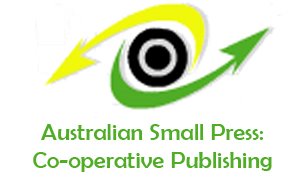My perspective on this is diverse:
- I'm a reader, and while I never really run out of things to read, because I am, and always have been, a compulsive reader, I'm always looking for new things to read.
- I'm a reviewer. I have been reviewing for a few years now, both books I've purchased and chosen to review, and books supplied by publishers and authors, for various print and online publications.
- I'm a judge - for the past two years I've convened the Fantasy Novel panel for the national Aurealis Awards.
- I'm an editor/publisher. I publish stories that have been considered for awards and mentions in Year's Best compilations and have done so for six years.
By rights, I should know the worth of awards, reviews and Year's Best mentions. But my opinions on this issue may not be the same as others, and I am very interested in hearing what others think.
Let's start with awards: I would not personally purchase a book for pleasure reading simply because it had won an award - even an award I know of, and in Australia alone there are quite a number of well respected and established adjudicated awards. However, when I'm purchasing in my role as teacher librarian at a secondary school, awards may play a part in my decisions. It certainly has when I've been weeding the fiction collection, and books that I don't know myself have managed to keep their place on the shelves because they have won a Premier's Award, or Children's Book Council Award. Is this wrong? I don't believe so. I try to read widely in the young adult arena, but I can't read everything. Many of these books were published in the years between when I left high school and when I started in the role as TL, and there's so much new work to consider, I simply don't have time to read it all. Other than popularity in borrowing, sometimes knowing a book has won an award or two is the only real measure of worth that I can go by.
From a publishing point of view, I have heard small press editors say that even multiple awards for a particular book has not had any impact on their sales. I wonder though, if in some cases, it's a little like building credit. In this case, credibility, the kudos that come with having work that has previously been critically acclaimed, and using it to create a positive image for the NEXT book that is released?
The same thing can be said for Year's Best reprints or honorable mentions. By the time these appear, it's probably a bit late to impact the sales of the collection the story appeared in, as these books can be produced more than 18 months after the work is released in some circumstances. But there is some merit in being able to utilise the acclaim with later works, with clever and consistent marketing of the product and making the most of previous accolades. Hopefully, with every sale of the new product, the buyer is also exposed to older publications, slowly selling through the long tail.
When it comes to reviews, I'm becoming more likely to purchase based on reviews of books. A number of reviewing and book blogs are on my RSS feed and "friends" lists, and this year I've made more personal and school library purchases based on recommendations from these blogs than from simply shelf browsing, demonstrating that for me, reviews are a powerful selling tool.
As an editor, it's always a good feeling to have my publications well reviewed, and I know many authors get a kick out of seeing their story received positively. In the case of short stories though, I'm not certain the same impact on sales is seen. The old adage "All publicity is good publicity" probably holds true though. Perhaps we're talking about two different things though. Possibly it's easier to make the decision to purchase a novel based on a review than a short story collection or magazine, knowing that if a novel is well reviewed, it's likely to be a good read through and through, whereas a story collection may be uneven in quality. Possibly it's the difference between large press and small, where the large publishers can send hundreds of copies of a book to reviewers and have a very good chance of gaining widespread publicity, but small press much count the value of each and every one.
Maybe it's true that the only person impacted by a positive review, an award, or a Year's Best mention is the author of the work. Maybe there are no other benefits to such things. I don't want to believe that, although there are arguments that validate it. Perhaps awards don't always get things right. Popular vote awards rarely do (just look at Australian Idol in years gone by!) but I think in most cases, adjudicated awards have valid reasons for choosing their winners. Year's Best compilations are really just one person's personal taste put together in a collection, but they also have their place in showcasing authors and markets consistently producing quality work. It's likely that reviews have the most impact on sales overall, but even then, for small press there's a barrier - availability. Getting rave reviews is a moot point if the work is not easily available to purchase. And while purchasing may be informed by reviews, awards and other factors, the truth is, often that review doesn't come to mind until the reader is confronted with the book on the shelf. But that is a topic for another post!
Would be very interested to hear some other perspectives on this. What influences your buying the most? Do you see a value for publishers in Year's Best mentions/reprints and/or awards? Is it really only to stroke the egos of our authors, or is there more to it?




